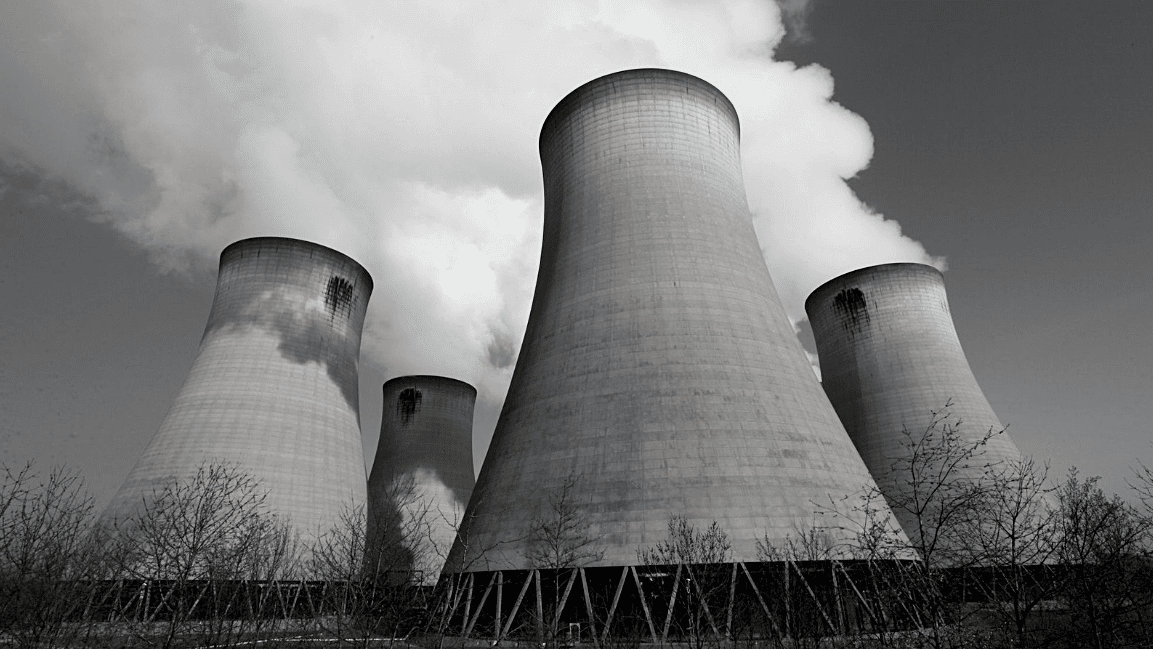UK biomass giant Drax has pulled out of two industry conferences following weeks of negative publicity, DeSmog can reveal.
Drax, which generates around six percent of the UK’s electricity through burning wood pellets at its power station in North Yorkshire, is hoping to secure an estimated £31.7 billion in government subsidies for a carbon capture project.
The energy produced by the company is currently classified as renewable under UK and EU law, based on the disputed argument that emissions from burning the wood will be recaptured by trees planted in their place.
But Drax’s green credentials have been eroded by a string of revelations, which link the firm to clear-cutting Canadian forests and document repeated breaches of pollution levels around U.S. manufacturing plants.
“The jig is up for Drax,” Megan Corton Scott, a political campaigner at Greenpeace UK told DeSmog. “An autumn of scandal has chipped away at their carefully curated green image, exposing the company as little more than a big polluter.”
‘Platinum’
Drax was initially billed as a “platinum” sponsor at the Carbon Capture and Storage Association (CCSA)’s annual conference – dubbed the “leading event” for the contested technology – which ends today at London’s Savoy Place.
The website for the event no longer mentions Drax, and DeSmog was able to independently confirm that Drax is no longer sponsoring it, though the company declined to state its reasons when contacted.
Drax is a member of the CCSA, and has featured at a number of its previous events. Karl Smyth, until recently Drax’s head of BECCS strategy & engagement, sits on the CCSA Board. When the sponsorships were first announced, the group tweeted it was “delighted” to have Drax on board, alongside energy companies General Electric, SSE Thermal and Equinor.
The CCSA declined to confirm the value of “platinum” sponsorship, the highest tier available, and did not explain why Drax withdrew from the event.
Drax was also billed as one of two “day sponsors” at the Waterline Summit, which is taking place this week in Hessle, East Yorkshire, but appears to have pulled out. The event organiser did not respond to a request for comment, but an archived webpage shows it was listed as a sponsor on 3 October.
The summit is being held by the University of Hull, together with regional marketing company, Marketing Humber, and U.S. oil refining company Phillips 66. The conference presents itself as an opportunity for the Humber region to show that it is a “critical” part of the UK’s plan to reach net zero emissions by 2050.
Under Pressure
The apparently last-minute decision to withdraw from both conferences comes after weeks of bruising publicity. Earlier this month, a BBC Panorama documentary revealed that Drax had been involved in logging trees from Canadian primary forest, contradicting the company’s claim that their biomass comes from sustainably managed forest residue.
A week earlier, Drax was accused of driving “environmental racism” after Unearthed and The Guardian revealed that the company agreed to a $3.2 million settlement over toxic emissions in the U.S. Deep South.
In response to the Panorama investigation, Drax defended its “world-leading sustainable sourcing policies”, saying they were “aligned with the rigorous regulatory frameworks and rules set by both the BC and UK governments”. A Drax spokesperson told Unearthed: “The safety of our people and residents of the communities in which we operate remains our top priority and we take our environmental responsibilities extremely seriously.”
Business and Energy Secretary Jacob Rees-Mogg was due to deliver a keynote address at the CCSA conference but pulled out at the last minute. The UK’s climate minister, Graham Stuart, who is a strong supporter of Drax, appeared via video link where he stressed that the UK’s “biomass is produced to high sustainability standards,” and “if it doesn’t then no subsidy should be paid”.
Drax receives more than £2 million a day in government subsidies to burn wood pellets for electricity, despite being the UK’s single biggest emitter of carbon dioxide. The company claims that adding carbon capture technology to its bioenergy, known as BECCS, will capture 8 million tonnes of carbon a year from 2030 by burying emissions from burning biomass underground.
“It is surely no coincidence that Drax’s apparent decision to withdraw from sponsoring these conferences comes just weeks after these investigations,” Sally Clarke, of campaign group Bioefuelwatch, told DeSmog.
“There is nothing green or renewable about Drax’s climate-wrecking tree burning and it is a scandal that the company is receiving over £2 million per day in UK renewable subsidies from our energy bills to fund its forest destruction and pollution of communities around the world.”
Greenpeace’s Corton Scott, who disrupted a Drax sponsored event at the Labour party conference following the Unearthed investigation, added: “Now the company is running for cover, avoiding addressing the shameful fact that their operations continue to be the UK’s single biggest CO2 emitter, whilst harming poor, marginalised communities overseas. It is scandalous that UK billpayer money continues to bankroll this company.”
Drax’s chief executive, Will Gardiner, was due to appear at a Drax sponsored event at the Conservative Party conference earlier in the month, but withdrew at the “last minute”, according to an event organiser.
A Department for Business, Energy and Industrial Strategy (BEIS) consultation on Drax’s BECCS project recently closed, with a final decision expected next year.
Subscribe to our newsletter
Stay up to date with DeSmog news and alerts







